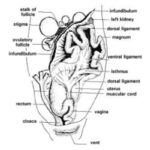The jubilation of Union victory in April 1865 was abruptly silenced by an unthinkable tragedy: the assassination of President Abraham Lincoln. Just days after Washington D.C. erupted in celebration of the Confederacy’s surrender, the nation plunged into mourning upon learning how Abraham Lincoln died. This pivotal moment in American history shifted the atmosphere from triumphant relief to profound grief, forever altering the course of Reconstruction.
The spring of 1865 in Washington D.C. was initially a time of unrestrained joy. News of Richmond’s fall on April 4th ignited widespread celebrations. Public buildings, including the Capitol, blazed with illuminations. Benjamin Brown French, Commissioner of Public Buildings, described the scene: “The Capitol made a magnificent display—as did the whole city. . . . It was indeed glorious, all Washington was in the streets.” French even had a celebratory verse from Psalm 118 displayed across the Capitol’s western portico, proclaiming, “This is the Lord’s doing; it is marvelous in our eyes.” This euphoria intensified when General Robert E. Lee surrendered at Appomattox a week later. Washingtonians again filled the streets, and celebratory gun salutes echoed across the city, ordered by Secretary of War Edwin Stanton.
However, this atmosphere of victory was shattered on the evening of April 14, 1865. President Lincoln, seeking a moment of respite amidst the momentous events, attended a performance of “Our American Cousin” at Ford’s Theatre. During the play, John Wilkes Booth, a famous actor and Confederate sympathizer, stealthily entered the presidential box. At approximately 10:15 pm, Booth shot President Lincoln in the back of the head at point-blank range.
The assassination attempt immediately threw Ford’s Theatre into chaos. Major Henry Rathbone, who was accompanying the Lincolns, attempted to apprehend Booth but was stabbed and seriously wounded. Booth then leaped from the presidential box to the stage, breaking his leg in the process, and escaped out the back of the theater.
Lincoln, mortally wounded, was carried across the street to the Petersen House. As the president lay in critical condition, Senator Charles Sumner kept vigil at his bedside throughout the night. Despite the efforts of doctors, Abraham Lincoln never regained consciousness. Surrounded by his family and close associates, Abraham Lincoln died at 7:22 am on April 15, 1865. Sumner, in his subsequent eulogy, urged, “Mourn not the dead, but rejoice in his life and example . . . . Rejoice that through him Emancipation was proclaimed.”
The news of how Abraham Lincoln died spread rapidly, transforming the celebratory mood into one of profound national mourning. The body of the assassinated president was brought to the Capitol Rotunda to lie in state. Pennsylvania Avenue, recently filled with jubilant crowds, was now lined with solemn mourners as a massive funeral procession made its way to the Capitol. Reporter Benjamin Perley Poore vividly described the scene: “The procession was two hours and ten minutes in passing a given point, and was about three miles long. … Arriving at the Capitol, the remains were placed in the centre of the rotunda, beneath the mighty dome, which had been draped in mourning inside and out.”
Senator James Dixon of Connecticut captured the nation’s sentiment, lamenting, “It seems even yet a frightful dream, rather than a reality… in the hour when his wisdom and his patriotism were about to be crowned with the success they deserved.” The tragic death of Lincoln, “the humane, the forgiving, the patient, the forbearing,” as Dixon described him, cast a long shadow over the hard-won Union victory.
Even as Washingtonians later witnessed the Grand Review of the Union armies in late May, a triumphant parade celebrating the soldiers’ return, the city and the nation remained draped in mourning. Senate doorkeeper Isaac Bassett, in his diary, reflected on the emotional dichotomy of the time: “No nation ever looked on such a triumphal procession… Here were our fellow citizens who had for four long woeful years left home… Sacrificed for law and liberties for us and our children… How glad they seem to be—their work well done, their homes secure, their nation saved.”
The assassination of Abraham Lincoln at Ford’s Theatre was more than just the death of a president; it was a seismic event that profoundly impacted a nation on the cusp of healing. How Abraham Lincoln died – through an act of violence at a moment of victory – became a defining tragedy in American history, underscoring the fragility of peace and the deep divisions that still plagued the nation even as the Civil War concluded.

